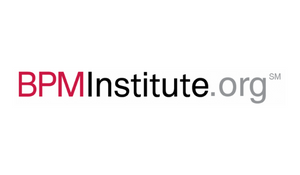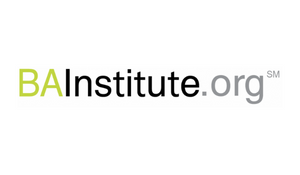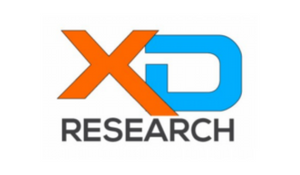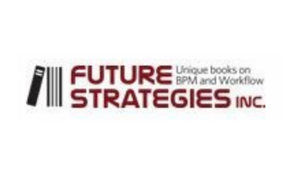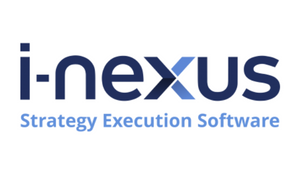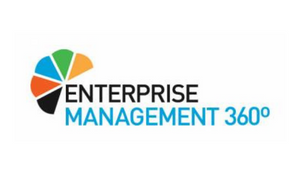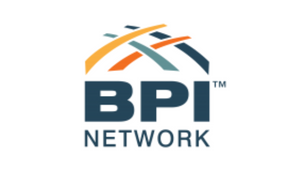
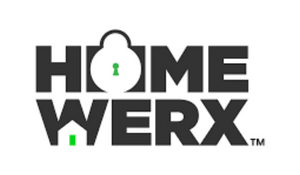
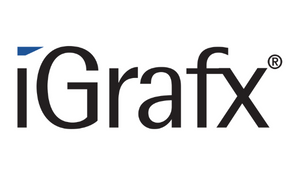
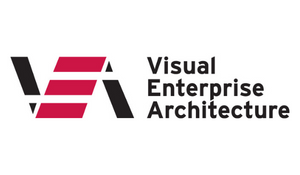
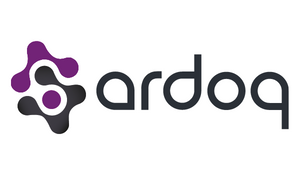
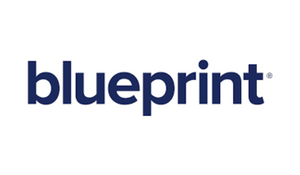
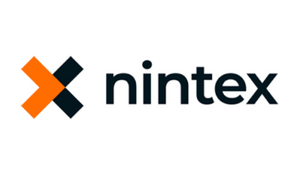
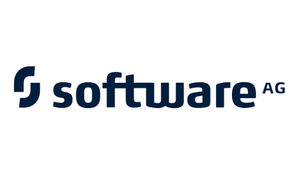
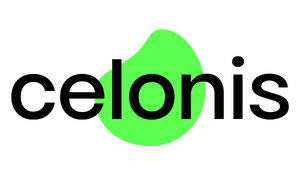
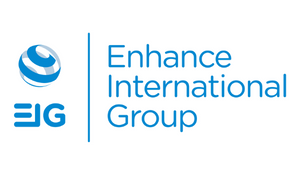
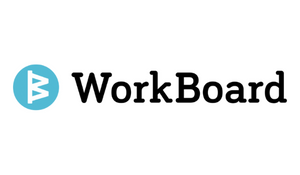
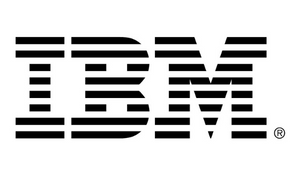
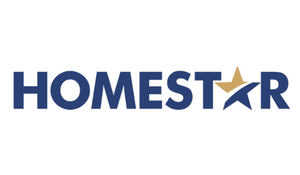
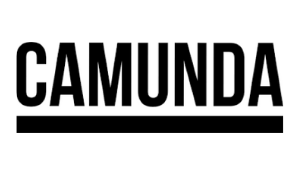
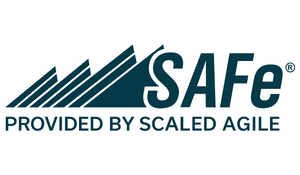
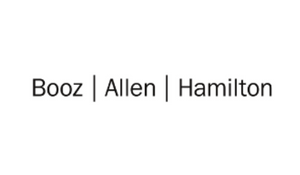
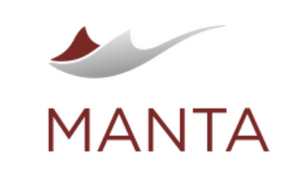
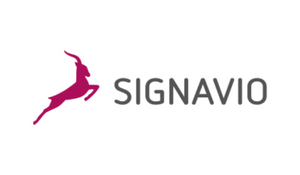
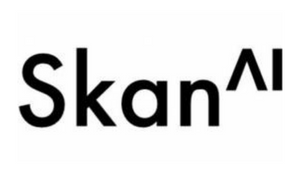

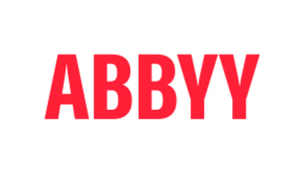
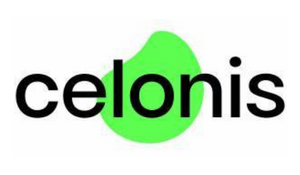
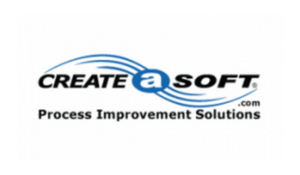
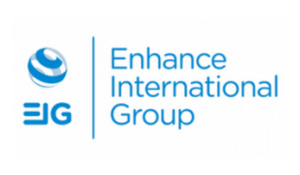
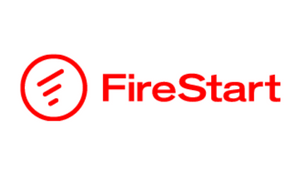

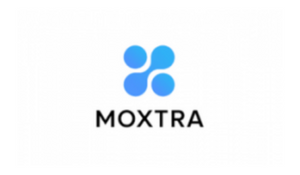
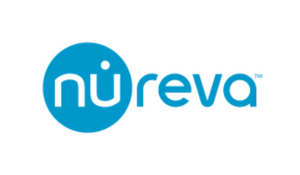
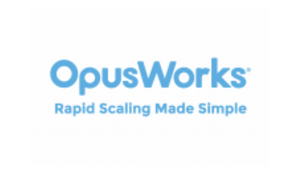
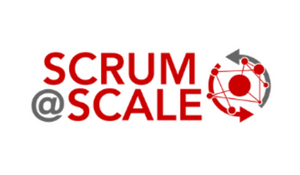
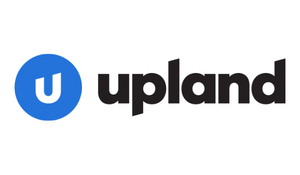
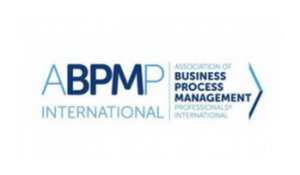
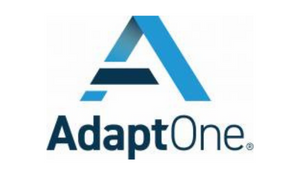
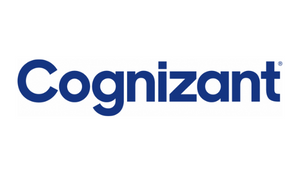
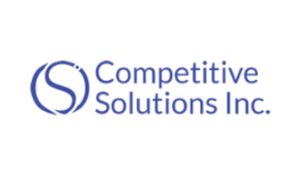
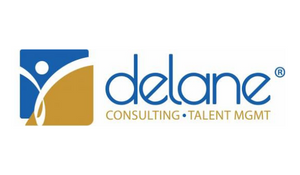

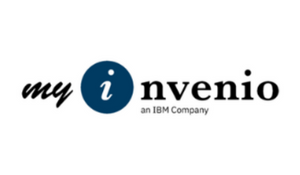
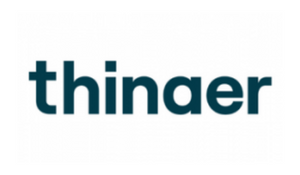
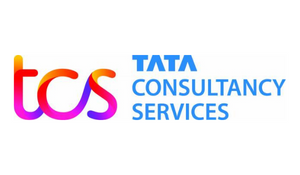
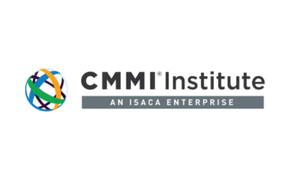
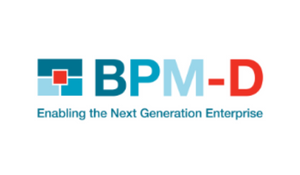

Courtesy of 's Dr. Keith Clinkscales, below is a transcript of his speaking session on 'Your Attitude is Your Breakthrough: Change the Attitudes, Change the Culture' to Build a Thriving Enterprise that took place at iBPM Live Virtual Conference.
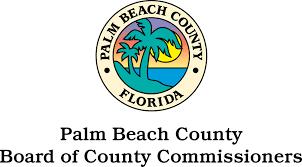

Session Information:
Your Attitude is Your Breakthrough: Change the Attitudes, Change the Culture
As cohorts of Operational Excellence, most of us attack operational excellence and cultural transformation by focusing on process and systems. But what about the people? What about people’s attitude? The famous John Maxwell says “Good attitudes among players do not guarantee a team’s success, but bad attitudes guarantee its failure”.
What if you could get people to live their life and work life in a way that maximizes their potential, opens doors, impacts people lives AND allows them to live financially well all while making your team/organization great?
Sometimes people feel stuck, unproductive and living a less than fulfilling life. This affects their performance at work. What is the key to breakthrough? Many will tell you it’s education. The acquisition of knowledge. Some say it is the ability to win friends and influence people. Some will say search for your purpose or passion. Others will say “hard work” is the key. All of these have some part to play and have some benefit. However, this presentation is going to show you what I have learned while consulting with hundreds and hundreds of organizations and individuals. You see, there is a “secret” hidden in all of this that can drastically change YOU, your people and your organization. Sure process improvement and system enablement can change and organization. But systemic change requires changing people and their attitudes. Embracing these concepts and putting them into practice will drastically change your organizations almost immediately. It is totally up to you.
Key takeaways:
Session Transcript:
Excited about our next guest.
We have with us, doctor Keith. Cooling Scales, directly from sunny, Florida. And the chief has been in the industry for a long time, and then after eight years and should, decades of management consulting in operational excellence. Keith is now the Director of strategic Planning and performance management for Palm Beach County, Florida.
He's responsible for helping over 30 departments, County Administration, and the board of County Commissioners progress with strategic alignment and performance improvement. Keith. I'm so, looking forward to your presentation about how we are using this approach, is to change and transform the way we govern, and the way that we actually make progress in our institutions.
I am happy to be here, I will say. This is an honor, and I'm pretty excited.
So, would you like me to begin?
Please go ahead.
So guys, listen, this could be a little bit of a different type of presentation, because I want to talk about your attitude. I want to talk about your organization or attitude.
You know, the previous presentation was fantastic, awesome, in terms of how do we actually go about automating it?
Do an I, P P M But if you don't have the people, if the people don't have the right attitude, that's very difficult to do so in this presentation.
It's a little bit different.
I want to talk about your attitude to people's attitude and is no longer easy to just focus on programs, process improvement and systems.
We have to talk about people and how did we develop our people.
Most allusions, you know, we all come to sort of from a operational excellence background, but most of the time we tend to focus on the process and the systems.
But I want to talk a little bit about the people in your organization, and you, you, as, a person, a leader within your organization, because, if we can begin to change the attitudes, we can change people, we can change performance and ultimately change the culture.
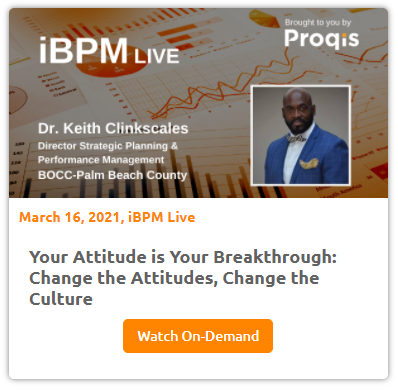 Imagine trying to implement some of the things that Kamala was talking about.
Imagine trying to implement some of the things that Kamala was talking about.
If you have a, with an organization, with all the wrong attitudes, he talked about legacy.
What if you have legacy attitudes where they don't want to change?
We have to begin to work on the people.
Now, I understand this is sort of touchy feely but look at this is one of the major components: processes, systems, and people.
If you want to truly transform your organization culturally, you have to transform the attitudes. They have to begin to think differently.
You have to invest as much as you do in process and systems as you do in people development.
I want to ask you something.
Think about when you were 18 years old.
If you could go back to your 18 year old cell and gave a piece of advice, what would it be? Now, I did this recently with myself, and that's me at Boston University, College of Engineering.
And I said, if I can go back and talk to my 18 year olds, I would, I would ask, I would tell them, key.
You need to have a really good attitude in every situation that you approach.
You have to be willing to think out of box.
You have to think, broad scale.
You gotta look at all of the angles, and you have to look at the good in every situation.
A problem is just something that needs to be solved, is an opportunity.
So, your attitude, we'll determine your altitude.
Let me talk a little bit about what we've done at Palm Beach County.
Now, when I came to Palm Beach County, I had an awesome task, because there's 35 plus departments.
And there were tons of silos.
All of the departments were operating.
Suboptimal, a very, very good within their silo, within their department.
But in order to do, Process, automation, is summed up with things that we've talked about.
An IBM, I PBM, you have to be able to break down the silos and get people to work together and they have to have good attitudes in order to do that.
So I started immediately engaging the departments and getting them to work around the six strategic priorities of the county.
I began trying to change their attitudes.
We've talked about how do we make work more like Disney World?
We talk about celebrating greatness and everyone. We've talked about thinking out of the box, coming with innovative solutions, breaking down silos, and working together, first, before we begin to add technology and process and nuances to the organization.
So what about your attitude?
What is an attitude?
I want you to walk away with two major key concepts.
You're added to reflects behavior, be attitude of your people, reflect behavior, And you add it to, say in another way, update performance.
Optimal performance, are you truly getting operating performance from all of the team players in your organization?
You can't control every day. And I've tried it.
Coach leaders to help their, people understand that.
You can't control every situation, but you can control you in this situation and how you respond.
So, I want you to think a little bit about work.
It's shaping the attitudes of your people.
What's shaping your attitudes, Religion, peers, family, teachers, coaches, past experiences, media friends, now understand it. If these are the things that are are affecting or shaping the attitudes of your organization, of the people in your organization.
Are you jumping straight to process automation and solutions and systems? Without understanding the attitudes of your people or the issues associated with the people that you're, you're trying to do, all of these innovative things with.
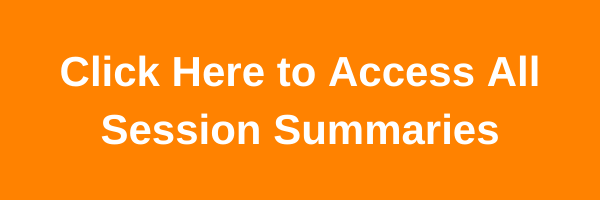 We have to understand that everybody comes to the table with a set of pre-conceived notions, or things that have shaped our attitudes about, uh, not changing, not wanting to change, not wanting to do things differently.
We have to understand that everybody comes to the table with a set of pre-conceived notions, or things that have shaped our attitudes about, uh, not changing, not wanting to change, not wanting to do things differently.
So, what shapes the attitudes in your organization and are you doing anything to address or making sure that they have strong, positive attitudes?
Is this coincidence or not?
This is amazing to me.
We often tell our children, get a good education, work hard.
Do you ever tell your children or your employees to have a great attitude?
Now, look at the look at this sort of equation.
These are the alphabets and the numbers eco are tied to the alphabet, the knowledge equals 96 artwork equals 98.
But attitude totals 100.
I just thought that was interesting, is that a coincidence or not?
So you can get a lot done with hard work, you can a lot done with knowledge.
But we have an organization pool of bad attitudes.
John Maxwell says, it can bring down an organization and bring down the team.
A good attitude requires looking at the entire picture for multiple angles.
So what do you see?
Just do nothing.
Now, what do you see?
Just do nothing. It is impossible.
But when you look from life at an entirely different angle, you see, just do it. Nothing is impossible.
That's what we've tried to do here at Palm Beach County is try to get people to look at the entire picture.
It realized that, just do it, Nothing is impossible. We can do anything.
You just have to be willing to look at things from other people's perspective.
So your attitude actually will determine your people's attitude in your organization. We're actually determine do they watered their dreams to the water, the fears, or do they want it and securities?
If you don't face your fears, you're going to want them.
Some people focus and water, the insecurity is a weaknesses.
I say that because again, these are people in your organization who you're trying to actually use to actually improve and automate your systems and processes, But you're not dealing with their attitudes and the issues that they're bringing to the table.
one of the things that I try to is so important is that not to have an attitude of blaming everyone else.
When I walked around to all the different departments, and I spent a lot of time with with with the, the leadership here, uh, sometimes you run across, point our finger point people blaming each other or departments blaming each other.
It is so important that you are responsible for your happiness, your decisions, your reputation, your influence, your appearance, your choices, and also ultimately your behavior.
And so I try to tell all of the, or the people in the organization as I, as I teach them, listen, you guys are in your future.
You only the your own success and you own the success of your department.
So having goals relieves stress.
one day your life is going to flash for you, Make sure it's worth watching.
Did you know that having goals and achieve Windham can actually help you have an awesome attitude.
If you can get your organization, your department, your company, to set goals and achieve them.
You can actually change the attitude of the organization and ultimately change the environment.
one of the things that, uh, we tend to run into when we're trying to do process improvement and improvement organization, we realize that a lot of people have a different perspective regarding success.
John Maxwell says help people to focus on their purpose.
As opposed to, uh, focusing on wealth, and happiness and possessions. Knowing your purpose in life, growing to reach your maximum potential, as someone sees that, benefits others.
If you can actually cultivate that in your organization, your organization begin to thrive, and you can do anything.
seven things you can use as guiding principles.
So we've been teaching.
We have about 6700 employees in Palm Beach County.
I talk about going out to dinner drinks and not people, so you're not competing.
Love yourself, and the rest will follow. Never lose your sense of wonder.
You are capable of more than, you know.
There are no regrets in life.
Everything is for reason, and you can learn from the learn, from everything.
Your only limit is yourself and life goes by the blink of an eye so live life to its fullest.
When I speak to majority of the people in the organization and I'm sure this has to be the case in many of your organizations.
There are people are living for the weekend.
Dick tolerating Monday to Thursday.
Uh, but they should really, you really want to get to the point where you, you cultivate an environment at work where the goal should be to live every day, like it's Friday, Saturday and Sunday.
Change your thinking.
I try to get people to come to work at a Promise Kiley thinking that you come to Disney World. What do we need to do to make your Monday through Thursday as enjoyable as vacation, or as enjoyable, as your Friday, Saturday and Sunday?
 I know It sounds touchy feely but if you can change the attitude, change the mindset, change the environment of all the people in your organization, you can accomplish anything.
I know It sounds touchy feely but if you can change the attitude, change the mindset, change the environment of all the people in your organization, you can accomplish anything.
So how do you change your attitude?
You'll never change your life until you change something. You do daily.
Daily routine, Jane, your daily routine, look at your daily routine.
What are you doing? What do you need to change?
Seriously, Go home tonight and think about your daily routine and what, And as I'm speaking to you, but I'm also speaking to something that you could take back to your people.
Ask him, work in the daily routine needs to change it over them, to have a more exciting role that work.
Expecting things to change in your organization or in yourself.
Without putting in any effort, it's like waiting for a ship at the airport, they have to be willing to get to change and want to change.
So how bad do you want it?
How did, how bad do you want your organization to change?
Are we truly focused on just process automation, systems and technology?
But we don't want to change the mindset, and the attitude, and the environment of our people, because that's where Shew cultural change comes from.
Here's a few examples.
Why is important to change your attitude?
Refusing to change, can actually yeo two missed opportunities.
Netflix did not kill blockbuster.
Uber did not kill the taxi business.
Amazon did not kill other retailers.
Air-b.n.b. isn't killing the hotel industry.
Some of these industries refused to change.
The mindset. They refuse to change the attitude. They refuse to change their way of looking at business.
And so, they will replace.
Success doesn't count for what you do occasionally, but what you do consistently: So, we're talking about cultural change. We're talking about cultural transformation.
Yeah. We can put in new processes. We can change the process. We can change the system.
But if we do not address people development, training, leadership, getting people to think out of the box, be innovative, a new thinking, bringing new ideas to the table, then you're not going to chase culturally, you won't have Culture Transformation.
I always like this, because I say that I tell my folks, you can't spell challenge without change.
In other words, um, so many people fear change and we're doing things differently.
But that's the challenge.
That's a challenge.
If you're going to rise to the challenge, you have to be prepared to change.
So a lot of this was sparked through Coby and the county trying to deal with Kobe.
And we have to really educate the people to help with their attitudes.
And I'm throwing this out there because they're with, with, with the challenges of the the pandemic.
No, we get more and we've had to learn to pivot.
And we've had to learn to keep a good attitude in the midst of all that we're going through and still provide. Excellent service. So, I shared this with a number of employees, things to do when you are bored.
Because when you're bored, you actually have, you're not optimal. You have, you have an attitude issues.
And so we've, we've tried to help our people work on the attitude by giving them, they give them some suggestions on what to do when they're bored.
Sure.
Good attitude ingredients.
I love this.
I try to help people laugh more, party more, travel more, think more, advise more.
Care more and love.
Care more and love.
We have all had a really, really trouble.
Tough 2020, because these are some of the things that, actually, I've kept people with great attitudes, great work environment, great work ethics, and that still allow us to provide excellent service to our customers and to our clients.
Again, uh, change the attitude.
Change the people.
Change the performance.
I want to ask you a question.
So children laugh 400 times a day.
Adults laugh 15 times a day.
What's wrong with that picture?
Laughter is chicken noodle soup for the soul.
Now, it asks you a question.
I know we're talking about business process management, An intelligent business process management, and how do we actually innovate using technology and systems?
.png?width=742&name=Screenshot%20(4).png) But, take a step back and think about the people, What does your work environment like?
But, take a step back and think about the people, What does your work environment like?
Are people happy?
Are they laughing?
Do they enjoy bringing innovative ideas to do the work?
No, because one of the questions that came up in the last session was, Well, how do you do all of this, If you have silos, How do you do all of this?
If you have organizational issues, if you don't have vision and leadership, but, well, a lot of that has has to do with attitude, Changing the environment, changing attitude, changing the, the, the, the, the camaraderie in your workplace, because that's where innovation is, Bert, through people having a great time.
And they also, if you create an environment where people ideas are valued, you'll get innovation.
Our attitudes have consequences.
Imagine you and you, you guys, as leaders in your organization.
People are watching you.
They're watching to see, or do you think out of the box.
Do you care about people?
Uh, do you have innovative ideas? Do you value their opinion?
Um, they're looking at you.
No, this is, I thought about quitting, but then I noticed who was watching?
What about attitudes in your organization?
Self-control, willingness to think about alternatives and cancel unhealthy docs.
Some of the things to think about.
Helping your people to have self-control, controlling their emotions, look for alternative solutions all the time. How can we do things differently?
How can we go great?
How can we do things, and touch things one time versus multiple times, and then all the negativity from legacy, or from people who have been disgruntled, how to cancel some of the negative energy and replace it with something as positive, a innovate?
I like this because it basically says, Do don't let anyone rent space in your head unless they're a good tenant.
I say it, because I talked to a lot of people, a lot of folks who are cool, who have a hard time performing at work, because they have so much negative inputs.
So, we try to promote good thoughts, only good vibes and not allowing negative things to take resonance in our heads because that perfect, that affects performance.
Let some things go.
Tell us, tell your people yourself to let some things go. We give CPR to death, situations. Old solutions. We give CPR to things that will not yield benefit or innovate or be innovative.
Be willing to let some things go and teach your people in your organization to be willing to let some things go.
Some things that we did.
You know, one of the things as A operational excellence consultant, I used to really, really hate to hear, is, Well, we've always done it this way.
Well, if it's not broke, don't fix it.
Well, hey. No, it's not broke, but, you know, you're spending 10 people have to touch it.
It's tons of rework.
There are ways to do things differently, so stop giving CPR, too, did situations.
Now this is really key here.
Some of the trials and tribulations that people don't see need to be met.
So what you tend to see in what your people tend to see in the organization is what's above.
They see the rewards. They see the medals.
Uh, they see, you know, the gold stars.
But we really need to understand what's under the surface and how do we make, how do we create an environment where people can thrive even though they've had some rejection, some sleepless nights.
They're stressed out about meeting targets. They have their daily goals.
They're trying to stay healthy because these are the people in your organization.
And we tend to focus on what's above the iceberg.
But we don't realize that our people are struggling with all of the things that are below.
So do we actually care about the things that are affecting the attitudes of the organization, of the people?
Because your people are your greatest commodity.
I always tell, people do not wait for somebody else to pat you on the back.
Stop waiting for others to celebrate you.
Set goals, achieve them, and clap for yourself.
So all of the folks that I've talked to are, you know, I didn't receive an award nor accolades for this process, and appreciate me. hey, listen, you gotta know that you've done a good job, and pat yourself on the back.
 I'm saying this to some of you, but also, this is the type of message that I would like for you to share with your employees.
I'm saying this to some of you, but also, this is the type of message that I would like for you to share with your employees.
Do what you came here to do, and noticed you did a great job and patches up on the back.
It promotes a healthy, strong attitude.
Adversity. We all go through it. You'll come back is more powerful than your setback.
That speaks for itself.
Adversity creates resilience, develop maturity for most innovation, and it motivates and motivates people.
So when you have a setback in your department and your organization, your company, talk to you folks and say, listen, we're going to learn from this world from the mature from this and wanted to come out better on the other side.
But to actually ignore that there was adversity, or that there was something that actually was not as successful as a company to ignore that, is to ignore the reality that they're dealing with that.
So, you might as well just talk about it and say, listen, this, what we're going through is creating resilience. It develops our maturity, and we're going to be number one, regardless of the fact.
You are built for adversity.
If there is a Goliath that you use your people, your company is going up again. That means there's a David in front of you and we all know the story of David and Goliath.
David Red towards the giant word rare towards the issue and he took it there.
Let's think about that in terms of how we actually approach problems in our organization.
I tell folks this, showing up, there's 10 things that you can do that requires 0, 0 tolerance.
I mean, this is something that you can share with your employees day one when they first start Because it actually creates an attitude and an environment that is productive being on time.
Making an effort, being high-end energy, having a positive attitude, being passionate about what you do.
Using goodbody language being coachable, you know, allowing someone to speak into you, and to change your thinking.
Don't have the extra all the time and being prepare and having a strong work ethic.
All great attributes of somebody with a fantastic attitude.
When you have an organization that has this type of attitude, the people are willing to do just about anything for the improvement of the organization.
I also tell leaders to help get people to be authentically themselves, U B U.
There's no one can be, you are being you, and your people need to understand it, and then they need to hear that from the leadership.
I remember when I was, uh, in my twenties, newly married, we had a dog and our dog's name was Ubu U B, U And that was my daily reminder, keep be authentic.
Help people be authentic.
Tell people to see their gift and be totally. It's totally comfortable with being authentic and sharing.
They do not try to be like someone else or do someone else's job, but be authentic and real about what you are and what you do and what your gifts are.
Tried to live a life of no regrets.
So, yeah, we've talked about, I know you guys are respecting process and systems, I'm still talking about your people, helped him to live a life of no regrets.
Not speaking up for you to take risks, not meeting enough people, if you can help your people to not live a life of regrets, to think positively about their work environment.
To think positive about the gifts and how they contribute to your organization.
Then when you start talking about, uh, puzzles innovation and technology, and breaking down silos and doing things differently, then you can, you can get them on board, you can begin to break down silos.
And always remember, We've tried it, You know, this is, this is difficult because when you really, a company that is driven on revenue and trying to trying to do well financially, sometimes, we forget about the compassion of caring.
People don't care how much you know until they know how much you care.
All the people in your organization, they don't care about your title, dental care, about how much you know, your degree's your background, until they know that you care.
That's some of the issues that we're talking about today that you actually care about the things that are shaping their attitude, whether or not they are having a good time at work, whether or not work as enjoyable for them. I tell folks, all the time, I went and spoke to all the different departments.
I said, Listen, You spend 40 to 60 hours of your day at work, 40 to 60 of your week, 40 to 60 hours.
On average, most people spend at work, If you're not enjoying that.
If you're not enjoying 40 to 60 hours that you put it into your work environment, then you we as leaders have problems because that means they're going to be a revolving door. They're not going to stay.
So we have to make sure that we create a caring environment for our employees.
Treat yourself, people, employees, like they make a difference and they will.
Think out of the box, we've all heard this.
They are that box back in the day. And age is when I was one business process re-engineering with using my, my cameras book.
I had coffee to organizations.
You have to think differently. You have to be out of the box. Think outside, think that, Like there is no bonds. What would you do if you had no constraints?
Have that type of attitude?
Leap I love this, because John Maxwell said it leap and grow your wings all the way down Basically, Some things you have to figure out on the way.
Sometimes, you have to figure out why you're doing it, so take a leap of faith and grow your wanes.
why you're falling jump off, jump off the cliff and grow the wings.
While you fall, everything is plausible, take the everything as possible, leap and grow your wings on the way down.
Think positive.
This is interesting.
Is not the skills you don't have. That is what you think that you need that limits you.
Think about that again, is not the skills that you don't have, that image Is what you think you need that limits you.
I remember always wanting to, to write a book.
And I said, I don't have the skills.
You know, I can't sit and, you know, sit down, and, you know, I had all these reasons. I don't have that skillset. I'm not a writer.
I said, No, no, but then I thought about it after I saw this, It's what you think. You need, the limits.
 There's all other times, kinds of ways, to accomplish a task that it may not be tradition.
There's all other times, kinds of ways, to accomplish a task that it may not be tradition.
Some people represent the thought you have rejected for yourself.
And your, your organization. Some people represent the dots that you have rejected for yourself. I tell people this all the time.
Because you always wanted to write, write a book, you see everyone else writing the book, and then he's like, oh, that's something that I've always wanted to do, and then, uh, you realize you feel like a failure because you haven't done it.
Do it now.
Do it now, it's never too late.
The point I wanted to bring home, in the midst of all that you're going to hear over the next few days, process technology.
Uh, a whole lot of innovative ways to improve your organization, but I wanted you to remember, changed, attitudes, changes for people, changes your performance, and ultimately changes your culture.
Ultimately, change your culture.
Thank you.
That's about all I have, probably have some questions.
Very good, Keith. Outstanding. We have a number of questions coming in. I am gonna encourage the audience to keep providing those questions. I'm gonna coming in now with this, with this umbrella of culture over my head now, because you went all the way from home to culture here, man.
So I like it, But Let's face it, and I've seen all the whole spectrum of comments and feedback in there from our audience, from the Yes, I'm excited I'm gonna go back and change the world, too.
if I do that in my organization, They're gonna fire me and everybody who looks like me. So, what am I gonna do? So give help. Help our leaders come along this journey here.
So you could help us, um, understand. How did you influence the leadership in your organization and the people in your organization? to start having some of these mindsets that you talked about, there are so critical for for change our attitudes and behaviors in shaping our culture. So tell us a little bit a couple of things that emerge.
How did you do this journey with India in the in the area that you're operating on and in you know, what? did you learn in that process? What worked, what didn't work for you?
Well, it's interesting, because this was sort of a byproduct of, of my approach when I, when I, when I started with the county, and started meet with all the departments, I started with helping each department and the, in the county, look at the vision, mission, goals, and objectives.
So, from a strategy standpoint, And then I said, OK, we also need to have performance measures, but then, as I started to present those and training sessions, a lot of the people issue started to come up.
Well, we've always done it that way, or that will never change, Or, management is not committed to that, or leadership. It.
So I said, well, wait a minute, Let me pull back, and start to talk a little bit, allow them to speak about issues that are concerning to them.
And I realized that I went back to the days with my mentor when I remember my first job as an engineer, and the engineer manager came, sent me down is that key.
Always remember, before I, I said, what do you mean, sir? He said, relationship before issue.
He said, build relationships with people, and then you can tackle the issues.
Because if they don't trust you, if they don't think you care, if they think you have buys, motives, or, or they're not looking at the best interests, it's hard to get them to move in the direction that you want. So I said, OK. And then, as I begin to meet with all the different departments and accounting, it's like, OK, We have to look at how do we change? Because I asked a question. I started with a a slide to show this organization for this organization and said, Where are we today?
And this organization was one organization. Was, was bad. I was like, overload at work. I'm not, I don't feel appreciated.
Management is very political bubble on this side of the organization, which was the number 10. There was, we have goals, we objective. Feedback is great.
My manager cares, da, da da, and all the organizations rated themselves, and it was usually they were like a 3, 2, or 3 or 4.
I said, Well, I can't begin to make operational improvement and get innovative ideas, and implement strategy and vision all that.
If majority of the people are disgruntled, and that's where I came up with, that slide, I was like, Everybody couldn't wait to get paying for the weekend, will take a vacation, but they hated their job.
So, I said, attitude, and so, we began to transform the attitude, and that's it. I started every training session, welcome to Disney World.
And they will laugh and I'm serious, because we could really change the culture of Palm Beach County.
We're going to make this a great place for you to work.
And then when we started creating teams, it took off You've seen some of those pictures.
That was the first time.
Um, I did icebreakers across Deke Department teams about that attitude and it just took off. It became organic.
Farewell. And the end of course you know, that was done. Sounds like in the context of making operational improvements to the organization and coming up with new innovations. What was the engagement of your senior leadership? I mean, did you have to God, like, get permission to talk about some of these issues? You just kinda go rogue and it started like, talking to everybody in the in the in the training rooms. What did that look like for you?
Well, I was, I think I was blessed to be in the right situation, the right time.
three years ago, the, the big box, the county administrator, created a new position.
Strategic planning, and performance manage.
She had this vision, So, it was completely new. New. So, I had an open landscape.
I had a white sheet of paper.
Now, I knew what I wanted to accomplish. So I put all those packages together from years and years of consulting, and working in industry.
And I said, OK, strategic planning, performance management metrics, scorecards, total quality management, business process re-engineering, voice of the customer. I said, OK, how do I think all these operation of all these.
Operation no tactics and incorporated in the county.
And I knew I had to get out there and meet all the people.
And once I started doing that, I started getting feedback from the people who really needed to be encouraged and motivated. And had the attitude and mindset change.
So, I didn't, I didn't have any push back.
I had total commitment from the leadership, because the ultimate goal was to have all 30 departments have a strategy that lined up with the court, the umbrella strategy of the count.
And how I got there was up to me.
That's excellent. And share, if you could share with the audience a little bit about what the impact has been, what the results have been of having the shift in attitude, where, where you have emphasized the added. You know, the focus on attitudes and behavior, before you go into the system, structure, process, technology pieces. Yeah. No! It's so, It's so exciting.
And it's, kinda, like, when you have a new baby, and the baby begins to walk, then it begins to run, and then it begins to climb on things.
Now. And I always tell folks, the way you know cultural change has taken root.
is if you can, if you can leave.
And, it continues.
And, what I saw, what I had to do is model migrate from A an implementer to a facilitator, to a sort of a coach.
And so, now, we have these teams all over the county.
And when I see the collaboration, I saw all the success stories were.
So, record, we created cross divisional, each department just like 35 departments, each department has multiple divisions in it.
But the divisions weren't talking.
In, some of the division didn't know what the other divisions, but understanding department were doing.
So now that we have cross divisional team within the department, think at 35 departments and the departments weren't dark.
So, we get cross department teams now, and what's come out of that is, million dollar grant awards from Collaborate, from teams that have collaborated, we've got, uh, pictures, be shared, shared, any kind of newsletter of the, you know, all the employees having pop up appreciation days.
Seller Department celebrations. You just, you just, you just kinda see all of the of the genesis of what you created.
And it's good to see.
That's fantastic. and Keefe. one of the one of the themes that has emerge here has to do with with courage as well. Someone needed to have the courage to do some of the things you did. I mean you clearly exhibited a lot of courage.
I'm trying to do those things, because, know, you don't know how people are going to react to this. He can, some people feel like, you know, you're preaching to me about happiness, you know, you know, who are you to tell me how I should live my life type of thing. So, there's a love of courage and commitment then, each take place here and the raga Indra brought up an issue that was really kind of insightful. I thought that he says that he, he's organization, some, there were some a couple of change your leaders that were doing that.
.png?width=742&name=Screenshot%20(4).png) But then there was almost like a little bit of jealousy from senior leaders, because the people that were galvanizing the organization a way that the senior leaders felt that their kind of losing their their statute in the organization. I'm just curious about how you addressed situation like that.
But then there was almost like a little bit of jealousy from senior leaders, because the people that were galvanizing the organization a way that the senior leaders felt that their kind of losing their their statute in the organization. I'm just curious about how you addressed situation like that.
You have to have the courage to be that change agent, but at the same time you have to be mindful, respectful off. Some senior leaders will may be a little bit of jealous jealous of the fact that you're kind of taking this organization, this reaction that they may or may not have control over.
That you that that is an excellent question.
Uh, I've seen that What I've had to do is I've had to make them heroes.
I've had to figure away.
No, I take the backseat, then let in And then I promote The heroes, the leadership of the organization.
For instance, there's one department where this thing has just grown like tremendous, if we know, now this is also the case, the leader has to be secure in themselves, uh, in order to allow me to come in and talk to the organization.
But what I, in turn, do, is, I'd make sure that that leader is rewarded for his leadership, for his enemies, for being open, to allowing, you know, I every way you can think of, I promote those leaders. And those leaders then get high marks, with the county administrator, and a board of County Commissioners because the organization is doing all of these things. I take it back seat. I don't receive any credit, so to speak.
But leaders are organization just are viewed differently, because all this is going on in their organization.
So they began to take credit for as long as, uh, you know, if I was going in and I became sort of like the, the God of process improvement, our operational excellence, they would shy away because they're like, OK, he's he's still in all my album.
I just make sure that they are in its rightful place, because in order for that organization to thrive and do the things that they have to have Bible leadership and leadership that's willing to change.
Keith, thank you for bringing the energy, the attitude, to, to compliment all those wonderful structure systems and technologies that we have for business process management. So this really enriches our journey, is such a critical factor. I think, a lot of, leaders of operational excellence, and, and are not as comfortable with the level of vulnerability that's required, to lead with. The attitude that you described. But I think you have made a very, strong case about how critical that is for success. So thank you so much for sharing your insights, for sharing your Wisdom with us, we really appreciate it.
Thank you, thank you for the opportunity.
Thank you, ladies and gentlemen.
That was Keith, Clean Scales from the Palm Beach County. and in this journey of transformation, you know, what I would term this three H's of transformation, you must, you must engage the heads, you must engage the hands, and you must engage the hearts if you want to have a true, meaningful transformation, your organization.
So, excellent perspective from, from that, on engage in the hearts and engage in the hands, so that we can engage the heads. So, we're gonna wrap up the session now, and at the top of the hour, I'm going to welcome a leader in the insurance business that's going to talk about culture in the context of transformation and business process management and insurance. Her session is called Culture Eats Strategy every Time, How to go from wishing to Wisdom when Building a Winning Culture. So, I'll see you back at the top of the hour, was seen as a shock.
Some of you have asked questions about, you know, Oh my goodness, this is such a great presentation, you know, how can I have access to this.
If you gave me a little bit late and didn't see here my introduction early on in the day, remember, all of the sessions are being recorded, and you as one of the 2000 plus global register registrants for this event will receive a copy, will receive a link, and password to have direct access to the recording of this session, should be receiving. That's sometime next week, so you will have full access to it, and it's, it's, of course, a privilege of having it from because of our sponsors.
And so, I want to, again, thank kept Monda, ... and ... for being for sponsoring the event and allowing all of this of features and benefits to our global audience. Without further ado, I'm taking a break now, I'll come back at the top of the hour with Seeing the Shah, the Director of Global Business Services for Liberty Mutual Insurance. Thank you.

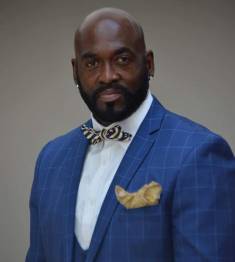 Dr. Keith Clinkscales,
Dr. Keith Clinkscales,
Director Strategic Planning & Performance Management,
BOCC-Palm Beach County.
Dr. Keith A. Clinkscale is a recognized Lean Six Sigma Black Belt & Operational Excellence Executive known for establishing best-in-class strategic performance management programs. Keith Clinkscale demonstrates a combination of broad industry experiences, performance management acumen and a history of results-oriented management consulting to drive significant improvement and cost savings. As a seasoned Industry Executive and Management Consultant, Keith built a reputation of excellence in all areas of operations.
His skillset includes over 30 years of Executive Coaching, Training and Content Design, Process Improvement, Benchmarking, Total Quality Management, Balanced Scorecards, Business Process Re-engineering, Strategic Planning, and High Performance Teams. Keith’s experience and sensitivity to customer concerns has always enabled him to provide a high level of service, whether in industry or as a consultant. Keith has headed the Performance Management Office at Palm Tran. Keith’s team provided executive coaching, goal and target setting through benchmarking, established and reported balanced scorecards, developed department scorecards and held department directors accountable for addressing deficiencies. Dr. Clinkscale has been the champion of Performance Reporting, Management and Improvement at Palm Tran.
Keith has a B.S. in Electrical Engineering from Boston University and a PH.D in Strategic Leadership from Concordia College & University. He is now the Director of Strategic Planning and Performance Management for Palm Beach County and supervises all activities related to the long-term strategic plan of Palm Beach County as well as the strategic planning of over 30 county departments. Keith is responsible for assisting the Board of County Commissioners (BCC), Executive Team, Department Directors, and staff with the development of long-term goals, objectives, strategies, and actions.

View our schedule of industry leading free to attend virtual conferences. Each a premier gathering of industry thought leaders and experts sharing key solutions to current challenges.
View Schedule of EventsWelcome to BTOES Insights, the content portal for Business Transformation & Operational Excellence opinions, reports & news.
-------------------------------------------------------
Search for anything
Insights from the most progressive thought leaders delivered to your inbox.
Insights from the world's foremost thought leaders delivered to your inbox.
Being a hero is all about creating value for others. Please invite up to 5 people in your network to attend this premier virtual conference, and they will receive an invitation to attend.
If it’s easier for you, please enter your email address below, and click the button, and we will send you the invitation email that you can forward to relevant people in your network.
View our schedule of industry leading free to attend virtual conferences. Each a premier gathering of industry thought leaders and experts sharing key solutions to current challenges.
View Schedule of EventsWatch On-Demand Recording - Access all sessions from progressive thought leaders free of charge from our industry leading virtual conferences.
Watch On-Demand Recordings For FreeDelivered by the industry's most progressive thought leaders from the world's top brands. Start learning today!
View All Courses NowThe premier Business Transformation & Operational Excellence Conference. Watch sessions on-demand for free. Use code: BFH1120
Watch On-DemandInsights from the most progressive thought leaders delivered to your inbox.
Insights from the world's foremost thought leaders delivered to your inbox.
Being a hero is all about creating value for others. Please invite up to 5 people in your network to also access our newsletter. They will receive an invitation and an option to subscribe.
If it’s easier for you, please enter your email address below, and click the button, and we will send you the invitation email that you can forward to relevant people in your network.
Courtesy of Nintex Pty's Paul Hsu, below is a transcript of his speaking session on 'Improve employee productivity during and post-COVID by ...
Read this article about HP, Best Achievement in Operational Excellence to deliver Digital Transformation, selected by the independent judging panel, ...
Read this article about BMO Financial Group, one of our finalists, in the category Best Achievement in Operational Excellence to deliver Digital ...
Read this article about Cisco, one of our finalists, in the category Best Achievement of Operational Excellence in Internet, Education, Media & ...


